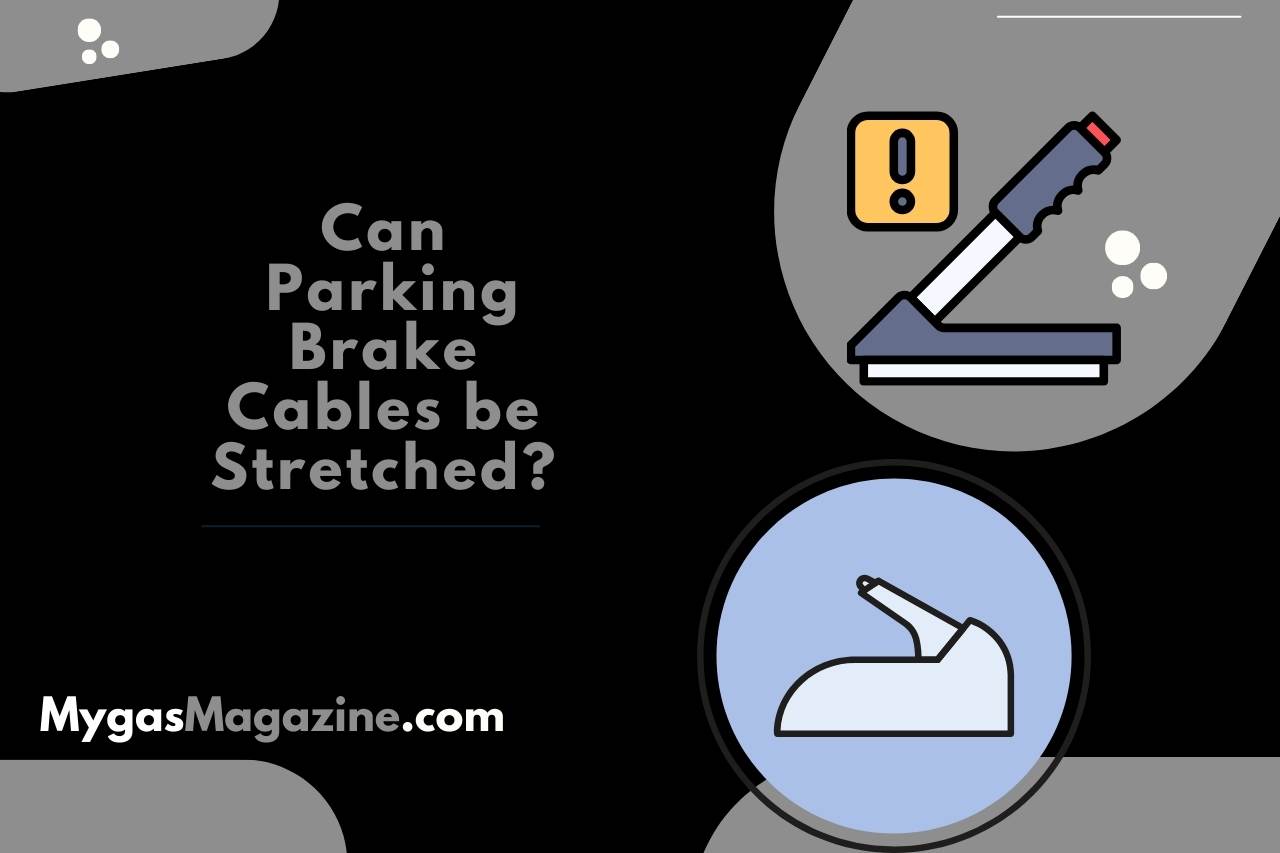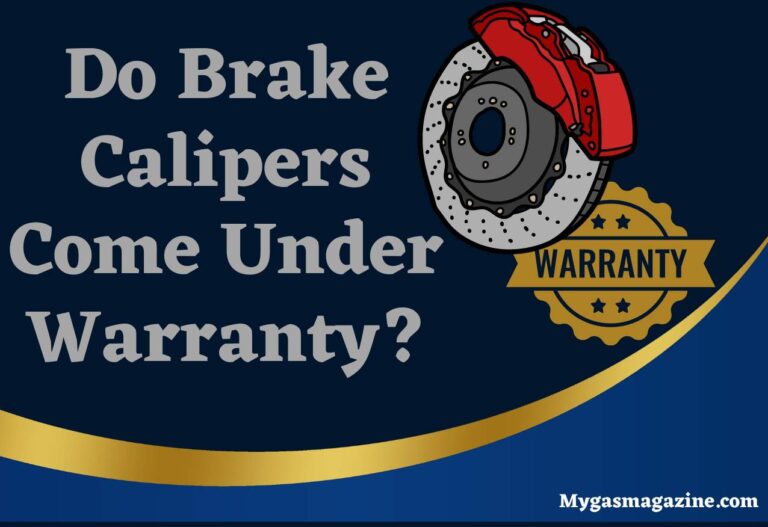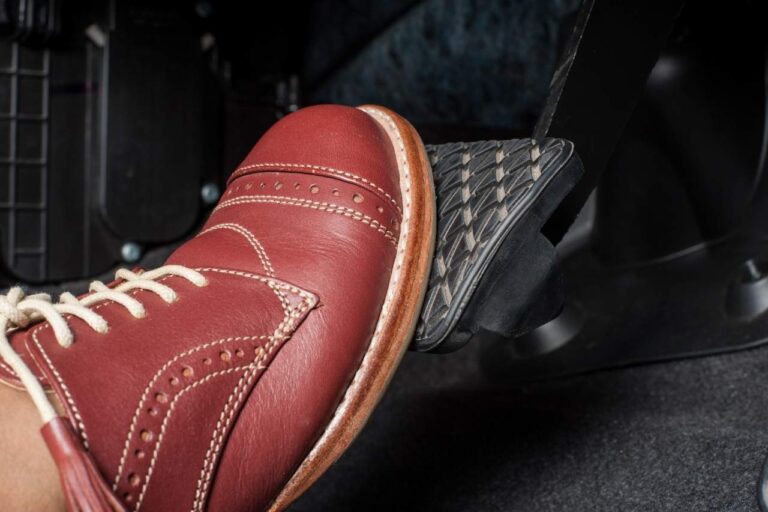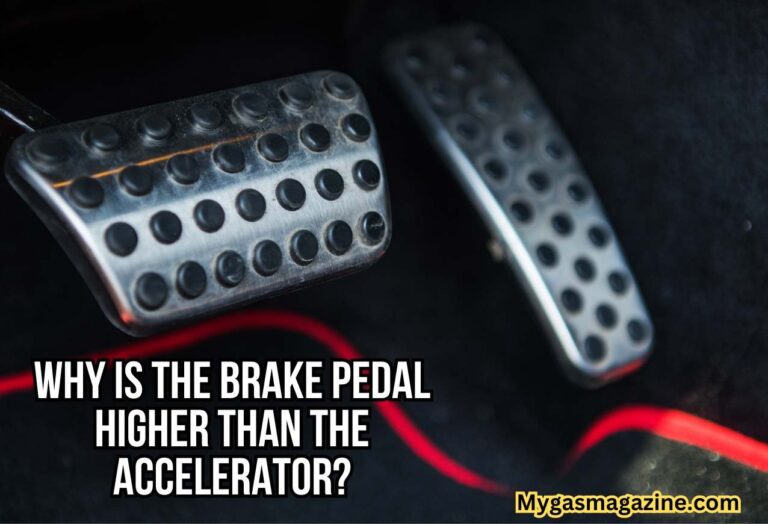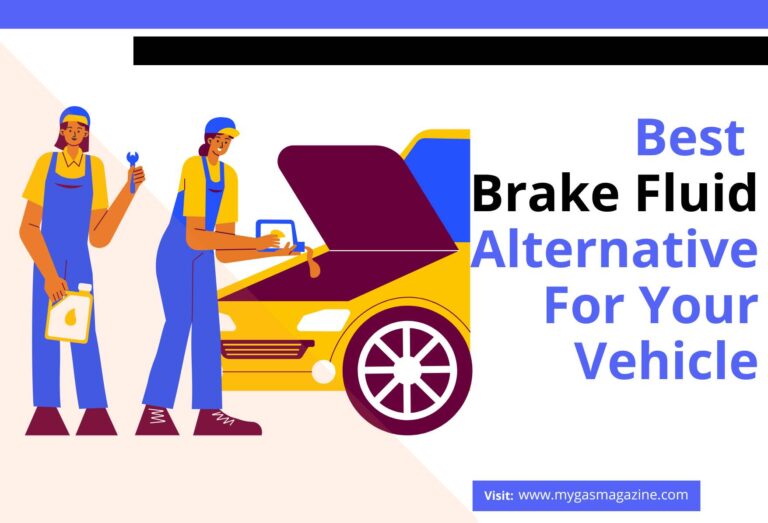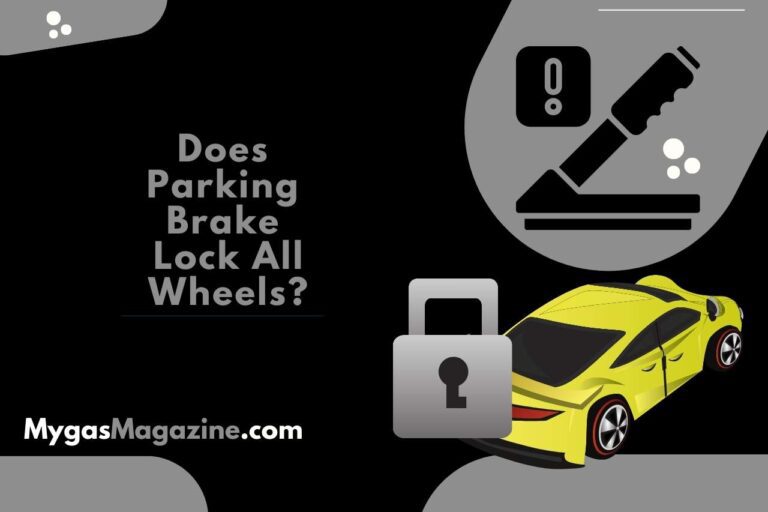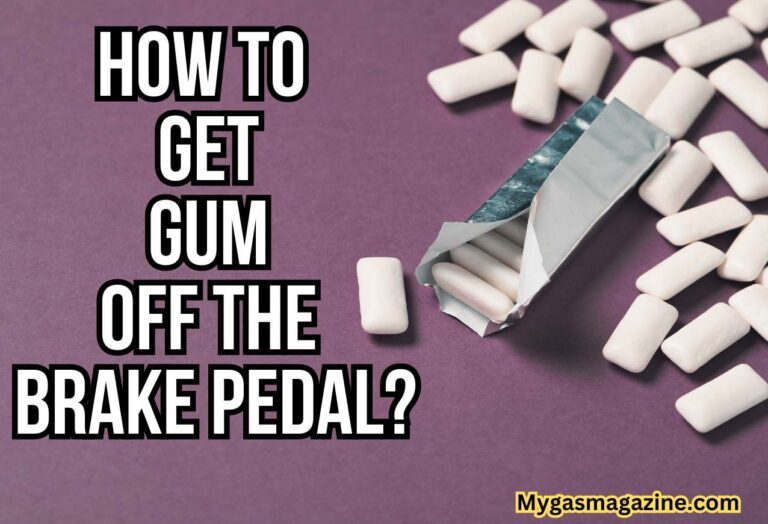Can you Leave Parking Brake On Overnight? What Happens If You Do?
Whether you’re a seasoned driver or just starting, the question of whether you can leave your parking brake on overnight might have crossed your mind, as it did for us. It’s a topic that relates to the safety and maintenance of your vehicle. In this guide, we’ll explore the ins and outs of using the parking brake, discuss the potential consequences of leaving it engaged, and provide valuable insights on when it’s safe.
Can You Leave Parking Brake On Overnight?
You can generally leave your parking brake on overnight without causing any significant harm to your car.
Parking brakes are designed to be engaged for an extended period of time without causing you any adverse effects. However, there are a few important considerations for you to keep in mind.
Firstly, ensure that your vehicle is on a flat or level surface when using the parking brake.
Using the parking brake on an incline is essential to prevent your vehicle from rolling away. In hilly areas, it’s especially important to use the parking brake when you are planning on parking overnight.
Secondly, make sure that the parking brake is functioning correctly. If the parking brake hasn’t been used for a while, it may become less effective. So, regularly engaging and disengaging the parking brake is essential as it helps prevent it from becoming stuck in the engaged position.
Leaving the parking brake engaged on a flat surface should not cause you any issues, but if you’re concerned or have doubts about the parking brake’s condition, it’s advisable to consult the vehicle’s manual or any professional mechanic for your guidance.
In most cases, when you use them correctly, the parking brake is a valuable tool for ensuring car’s safety and stability, both overnight and during the day.
What Happens If You Leave the Parking Brake On Overnight?
Leaving the parking brake on overnight can have potential consequences, although they are typically minimal and rare. Here are a few things for you to consider regarding the impact of leaving the parking brake engaged:
Brake Wear
Engaging the parking brake does create some tension in the brake system. Over time, this can lead to minor wear and tear on the parking brake components. While it’s not a significant concern for you to occasionally use them overnight, frequent and long-term use of parking brake could result in more extensive wear.
Sticking Brake
If you haven’t used the parking brake for an extended period, there’s a small chance that it might stick or seize when you engage it. This could happen if rust or corrosion forms on the brake components. To prevent this, it’s good for you to practice engaging and disengaging the parking brake periodically, even if you’re not parking on an incline.
Battery Drain
Some of our modern vehicles have electronic parking brakes. If your car has one of those systems, leaving it engaged overnight could lead to a small drain on your vehicle’s battery. While it’s unlikely to completely drain the battery, it’s worth it for you to be aware of this potential impact.
Uneven Brake Pad Wear
In some cases, leaving the parking brake on for an extended period can lead to uneven wear on your brake pads, particularly the rear ones. This can result in a slight imbalance in the brake performance.
It’s important to note that such potential issues are not common and usually occur after prolonged use of the parking brake. For occasional overnight parking, using the parking brake is generally safe and recommended, especially on inclines or hilly areas, where it adds an extra layer of safety. If you have concerns about the parking brake, consider having it inspected by a professional mechanic.
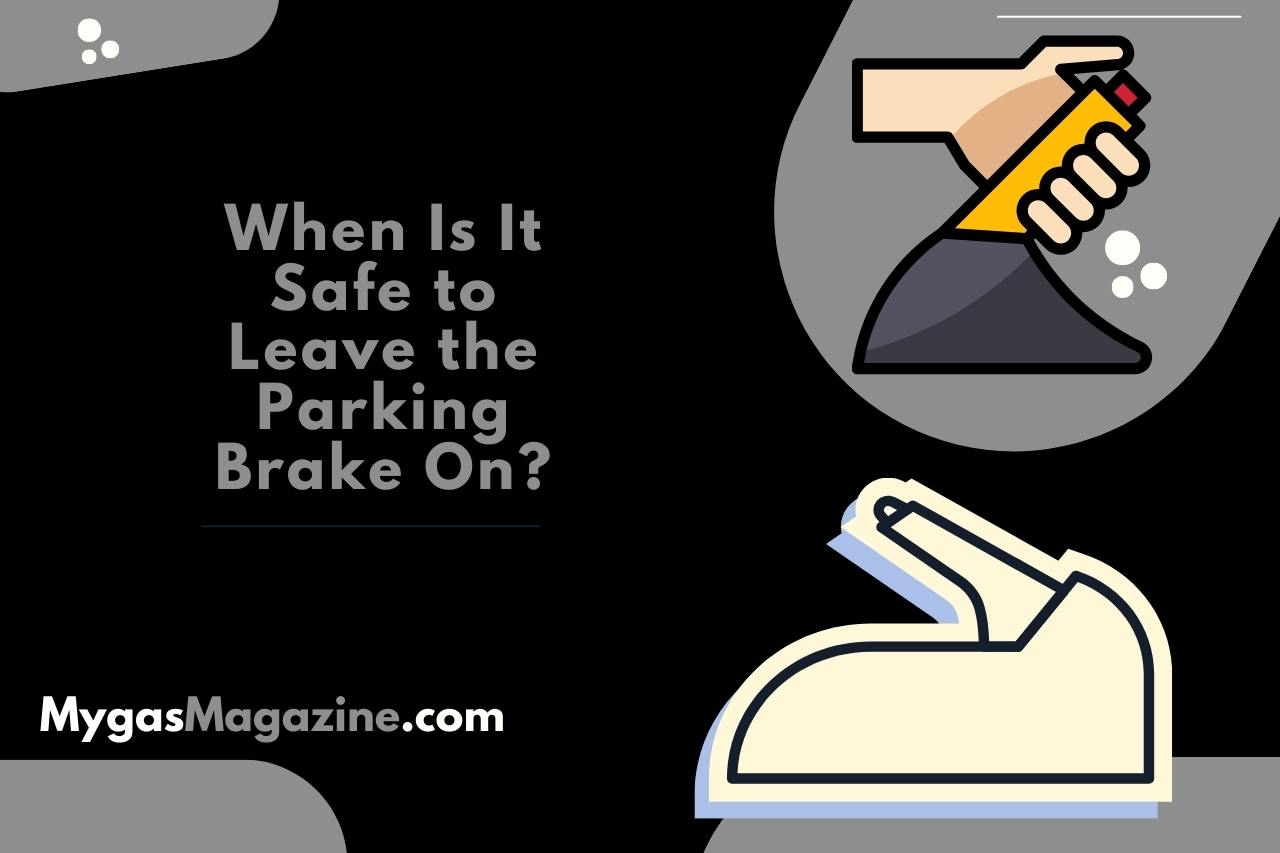

When Is It Safe to Leave the Parking Brake On?
Leaving your parking brake on overnight might be safe in certain situations. Here are some scenarios where it’s generally considered safe to leave the parking brake engaged:
On Inclines
If you’re parking on an incline or hill, it’s good practice for you to engage the parking brake. The parking brake helps you prevent the vehicle from rolling or sliding, providing you with an extra layer of safety.
Manual Transmission Vehicles
If you have vehicles with manual transmissions, engaging the parking brake is often necessary, especially if your vehicle lacks a “Park” mode. It secures your car in place and prevents it from moving unintentionally.
Rear-Wheel-Drive Cars
Rear-wheel-drive vehicles should typically have their parking brake engaged, especially on hills. This reduces strain on the transmission and helps prevent your car from rolling backwards.
Added Safety
Using the parking brake is advisable when you are parking for extended periods, even if your vehicle is on a flat surface. It ensures you extra stability and safety, especially if you’re storing the vehicle for a more extended time.
Peace of Mind
Engaging the parking brake can provide you peace of mind, knowing your vehicle is securely parked, and there’s no risk of vehicle moving unexpectedly.
While it’s generally safe to leave the parking brake on in these situations, remember that the impact of leaving it engaged overnight is minimal.
You May Also Like
- How do I Reset Parking Brake Light? Demystifying Dashboard Lights
- How does a Caliper Parking Brake Work? Unveiling the Mechanics!
- How to Tell If Parking Brake is Stuck? Uncover the Mystery!
- Difference Between Park and Parking Brake – (Understanding Auto Lingo)
- When to Use Park Brake? Mastering the Art of Parking!
- Park Lights Come On When the Brake is Pressed – Understanding the Link!
- Brake Lamp Bulb Fault – Replacing a Faulty Brake Lamp Bulb!
- Park Brake Limited Function Service Required – Expert Tips for Maintenance!


Meet Lakith, the driving force behind MyGasMagazine.com. A seasoned mechanic with over 7 years of hands-on experience in our family-run Gas Mag Garage, Lakith combines his technical expertise with a deep passion for cars. His journey in the automotive world began alongside his father, learning the intricacies of car repair and maintenance. Today, as the founder of MyGasMagazine.com, Lakith shares his wealth of knowledge, offering readers a unique blend of practical advice, industry insights, and engaging stories from the vibrant car culture of Sri Lanka.

